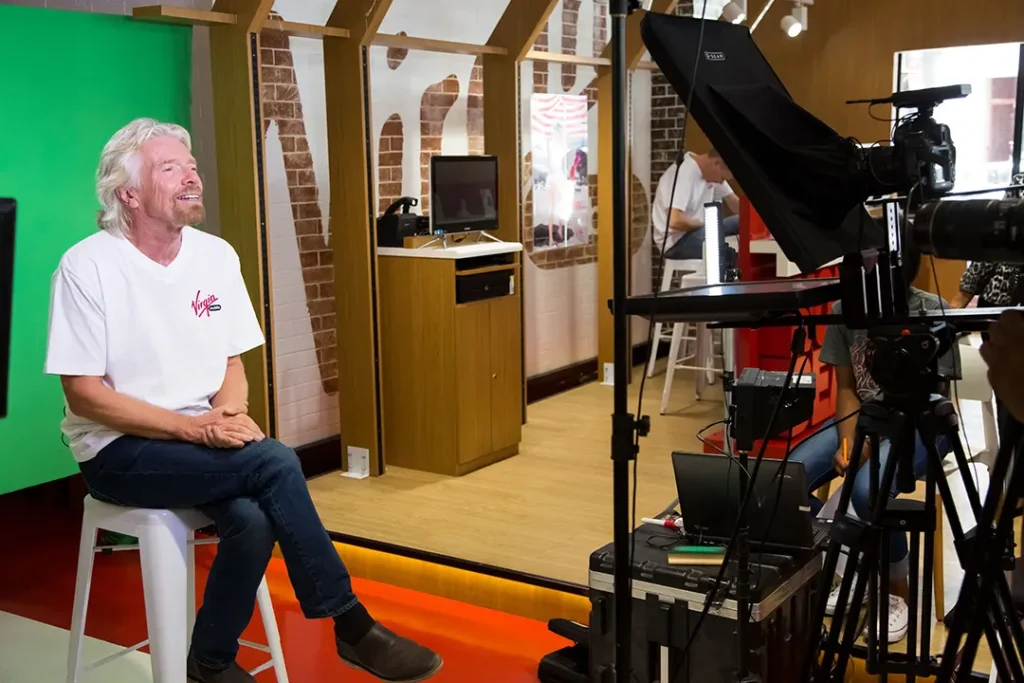By Daniel Butcher
Contrary to popular belief, university students don’t get drinking out of their systems during their college years before entering the workforce. Studies show drinking levels increase after graduation and peak in the mid-20s.
Academy of Management Scholar Peter Bamberger of Tel Aviv University said that especially for some client-facing roles such as sales, on-the-job pressures and social situations often lead to increased alcohol consumption among young professionals.
“The common perception is that people’s drinking is at its highest levels for young adults, at least when they’re in college, and then as soon as they get out of college, they take on employment; they start their career, and their drinking very quickly declines,” Bamberger said. “However, there’s been some indication already for the past 10 years that that may not be the case.
“In fact, the data on young adults shows that, particularly among college students and twenty-somethings, the peak levels of alcohol use and misuse are actually at around ages 25 and 26, and they’re continuously rising after graduation,” he said. “It’s not like people graduate from college and mature out of their drinking—the party continues.”
Bamberger and colleagues have studied different profiles of alcohol drinkers. Their research findings don’t always align with popular narratives about booze consumption.
“We’ve looked at how people drink alcoholic beverages, how frequently and when they drink, and there are certain patterns that are more problematic than others,” Bamberger said. “First of all, where individuals engage in heavy episodic drinking, like binge drinking, and they do it more frequently, and they do it not necessarily only on a weekend but during the week as well, that’s a very risky pattern.
“And then you have more in the middle of the range, moderate traits and patterns, and then you have patterns like only drinking socially or only on special occasions, and you have abstainers, but and most college students do drink—most are not abstainers,” he said.
“We have these three patterns among people who drink, and when we look at the likelihood of people shifting from a really risky pattern of heavy drinking to a more moderate pattern, or from a moderate pattern to light drinking, what we find is that these patterns are in fact rather sticky.”
-
Daniel Butcher is a writer and the Managing Editor of AOM Today at the Academy of Management (AOM). Previously, he was a writer and the Finance Editor for Strategic Finance magazine and Management Accounting Quarterly, a scholarly journal, at the Institute of Management Accountants (IMA). Prior to that, he worked as a writer/editor at The Financial Times, including daily FT sister publications Ignites and FundFire, Crain Communications’s InvestmentNews and Crain’s Wealth, eFinancialCareers, and Arizent’s Financial Planning, Re:Invent|Wealth, On Wall Street, Bank Investment Consultant, and Money Management Executive. He earned his bachelor’s degree from the University of Colorado Boulder and his master’s degree from New York University. You can reach him at dbutcher@aom.org or via LinkedIn.
View all posts
Up next....
Successful Entrepreneurs Leverage Knowledge and Motivation
By Daniel Butcher
Successful entrepreneurs focus on what they know best and care most about when brainstorming and evaluating business ideas, according to Academy of Management Scholar Dean Shepherd of the University of Notre Dame.
“Entrepreneurs often say, ‘Where do I look for an opportunity?’ Now, I always try and say, ‘We’ll look internally first at your own history,’” Shepherd said. “‘What is unique about you? What unique knowledge do you have?’
“My path is unique, just like every person’s path is unique, and it’s given me knowledge that other people don’t have,” he said. “If I can think about things from that perspective, then I’m more likely to come up with an opportunity that other people haven’t thought of in the past.
“In thinking about it that way, I’m more likely to see opportunities related to my motivation, something that I’m passionate about, and so opportunities are often identified at the intersection of my knowledge and my motivation.”
People who are knowledgeable in a particular field are better equipped to spot signals of potential opportunities in that area. Experienced entrepreneurs can also gauge the chances of success of a particular idea, even if it’s just a rough estimate, to decide whether it’s worth pursuing.
“If I’m highly motivated by certain things, then I’m more likely to see signals in the environment that relate to that motivation, and so it’s the combination of those two that allows me to identify opportunities,” Shepherd said. “I also evaluate opportunities in a similar way.
“I say to myself, ‘Do I have the knowledge, the skills, and the ability to be able to execute this opportunity? Is it feasible?’” he said. “And I also asked myself, ‘Is it desirable? Is it something that I want to do? If I do it and exploit this opportunity, does it give me the things that I want to have?
“And so it’s really that intersection of knowledge and motivation that is the how do we identify opportunities, and also whether we want to exploit those opportunities or not and what would be required to do so.”
-
Daniel Butcher is a writer and the Managing Editor of AOM Today at the Academy of Management (AOM). Previously, he was a writer and the Finance Editor for Strategic Finance magazine and Management Accounting Quarterly, a scholarly journal, at the Institute of Management Accountants (IMA). Prior to that, he worked as a writer/editor at The Financial Times, including daily FT sister publications Ignites and FundFire, Crain Communications’s InvestmentNews and Crain’s Wealth, eFinancialCareers, and Arizent’s Financial Planning, Re:Invent|Wealth, On Wall Street, Bank Investment Consultant, and Money Management Executive. He earned his bachelor’s degree from the University of Colorado Boulder and his master’s degree from New York University. You can reach him at dbutcher@aom.org or via LinkedIn.
View all posts
Up next....
When Entrepreneurs Can’t Acknowledge Failure, Disaster Strikes
By Daniel Butcher
Elizabeth Holmes, who was convicted of fraud for lying about the effectiveness of the blood-testing product of her biotechnology company, Theranos, is a cautionary tale illustrating a potential downside of entrepreneurship. Unable to deal with the failure of her company’s blood-testing methods, she just plowed ahead, refusing to acknowledge the disappointing results or telling any of the investors—or anyone else—that the tests weren’t working. She pretended like everything was okay, continued to collect investor money, and built up the biotech startup to a $9 billion valuation.
Academy of Management Scholar Dean Shepherd of the University of Notre Dame said that it’s common for entrepreneurs to deal with failure poorly, but investors failed to effectively scrutinize Theranos.
“A lot of the stakeholders there were maybe willfully ignorant—they wanted to believe her,” Shepherd said. “They didn’t ask probing questions; they ignored the negative signals, which is what we call a confirmation device.
“They look for information that confirms their opinions, and they discount or ignore information that disconfirms them, and so in many ways, she was negligent, but they were also negligent,” he said.
Sometimes entrepreneurs can’t even acknowledge failure to themselves, much less publicly, because their entire identity is wrapped up in success. One major failure could crack that self-image.
Shepherd said that job loss—or the failure of one’s business—can devastate a person’s sense of identity. He wrote about his research findings related to such phenomena in Hitting Rock Bottom After Job Loss: Bouncing Back to Create a New Positive Work Identity.
“Failure can have a huge impact on you psychologically, because your identity is quite often highly related to the things that you do for work, and when you lose that identity, you go into a crisis or a freefall, because you don’t know who you are anymore,” Shepherd said. “And if you don’t know who you are, you don’t know how to socially act, and it can be a very dangerous situation.”
-
Daniel Butcher is a writer and the Managing Editor of AOM Today at the Academy of Management (AOM). Previously, he was a writer and the Finance Editor for Strategic Finance magazine and Management Accounting Quarterly, a scholarly journal, at the Institute of Management Accountants (IMA). Prior to that, he worked as a writer/editor at The Financial Times, including daily FT sister publications Ignites and FundFire, Crain Communications’s InvestmentNews and Crain’s Wealth, eFinancialCareers, and Arizent’s Financial Planning, Re:Invent|Wealth, On Wall Street, Bank Investment Consultant, and Money Management Executive. He earned his bachelor’s degree from the University of Colorado Boulder and his master’s degree from New York University. You can reach him at dbutcher@aom.org or via LinkedIn.
View all posts
Up next....
Entrepreneurs Face Several Dangers
By Daniel Butcher
While entrepreneurs’ success stories get most of the publicity, the dangers they face are rarely talked-about elements of entrepreneurship.
Academy of Management Scholar Dean Shepherd of the University of Notre Dame noted that professors, business-book authors, and other journalists often tout the benefits of entrepreneurship without talking about its downside: Entrepreneurs often struggle and fail, sometimes with bad consequences for themselves, their colleagues, their loved ones, and even society.
“For quite a while, I’ve been researching entrepreneurs losing their business and people working on projects at an entrepreneurial firm when those projects fail,” Shepherd said. “The dark side of entrepreneurship is the negative emotional and psychological costs.
“The downside of entrepreneurship is the loss of your capital, your money, your personal finances,” he said. “And then there’s the destructive side—we always assume that entrepreneurship is doing good for other people, but it may not be.
“There might be some people who are greedy and engage in entrepreneurship that has a net destruction of wealth, so that really actually harms the natural environment or harms other people in order to just benefit themselves, or they didn’t mean to do it, but it just worked out that way.”
Opportunities exist in environments of uncertainty, so failure is going to be part of entrepreneurial endeavors. Entrepreneurs—and the people writing about them—should ask: What about the downside risk?
“Everyone says entrepreneurship is so good, and I do love entrepreneurship, but if we don’t understand the dark side, then how do we help entrepreneurs overcome some of the challenges they face being an entrepreneur, particularly when entrepreneurs pursue opportunities,” Shepherd said.
“We have to be able to help entrepreneurs minimize the potential losses from their action and avoid destructive entrepreneurship,” he said. “If we don’t understand why and how some people destroy societal wealth or the environment, then how are we going to be able to stop them?”
Shepherd highlighted a key question: “How are we going to be able to educate entrepreneurs to make sure that they don’t do that, and that they’re productive, rather than destructive?”
“The whole stream of my research along those lines is to try and really understand the flip side of the coin, because if you don’t understand the flip side, then you don’t understand the coin completely,” he said.
-
Daniel Butcher is a writer and the Managing Editor of AOM Today at the Academy of Management (AOM). Previously, he was a writer and the Finance Editor for Strategic Finance magazine and Management Accounting Quarterly, a scholarly journal, at the Institute of Management Accountants (IMA). Prior to that, he worked as a writer/editor at The Financial Times, including daily FT sister publications Ignites and FundFire, Crain Communications’s InvestmentNews and Crain’s Wealth, eFinancialCareers, and Arizent’s Financial Planning, Re:Invent|Wealth, On Wall Street, Bank Investment Consultant, and Money Management Executive. He earned his bachelor’s degree from the University of Colorado Boulder and his master’s degree from New York University. You can reach him at dbutcher@aom.org or via LinkedIn.
View all posts
Up next....
Dealing with a Failed Business
By Daniel Butcher
Most people’s reaction to the failure of their own business going under is like grief after the loss of a loved one. For many entrepreneurs, the best way to cope with failure is switching between talking about it and reflecting on it, according to Academy of Management Scholar Dean Shepherd of the University of Notre Dame.
Shepherd said that for some people, the more they talk about it, the worse their emotional reaction to the painful event gets. But for others, talking about their business failing can be cathartic.
“For some people, talking about failure helps them process it, but for others, dwelling on it causes the negative emotions to worsen, and that people actually need to have some periods where they can recharge their emotional batteries,” Shepherd said.
“The most recent research in that area said people actually have to oscillate between these two, a loss orientation, where you’re focusing on it, and a restoration orientation, where you’re deliberately ignoring it, not thinking about it, and start addressing secondary causes of stress, like selling the house, moving the kids from one school to another, these types of things,” he said.
“The important part is oscillating between the two, which I thought this was the weirdest thing, but I wrote a paper that ended up getting accepted in the Academy of Management Review, and then that set off quite a stream of related research.”
Shepherd then asked himself, “What happens if the organization doesn’t disappear, but the project that I’m working on does?” He worked on a paper with two coauthors about the negative emotional reactions that scientists working in Germany have when their projects fail.
“Those who are able to learn the most from the failure and those who were motivated to try again were the ones who were engaged in this oscillation process—they used both loss orientation and also restoration orientation,” Shepherd said. “They were able to learn the most and remain committed to the organization.”
-
Daniel Butcher is a writer and the Managing Editor of AOM Today at the Academy of Management (AOM). Previously, he was a writer and the Finance Editor for Strategic Finance magazine and Management Accounting Quarterly, a scholarly journal, at the Institute of Management Accountants (IMA). Prior to that, he worked as a writer/editor at The Financial Times, including daily FT sister publications Ignites and FundFire, Crain Communications’s InvestmentNews and Crain’s Wealth, eFinancialCareers, and Arizent’s Financial Planning, Re:Invent|Wealth, On Wall Street, Bank Investment Consultant, and Money Management Executive. He earned his bachelor’s degree from the University of Colorado Boulder and his master’s degree from New York University. You can reach him at dbutcher@aom.org or via LinkedIn.
View all posts
Up next....
The Secrets to Success for “Metacognitive” Entrepreneurs
By Daniel Butcher
Despite being dyslexic, Richard Branson co-founded Virgin Group in 1970 and eventually became a billionaire, British knight, and celebrity. He has speculated that his dyslexia was actually an asset by forcing him to think in less conventional ways when brainstorming, as well as launching and running businesses.
Academy of Management Scholar Dean Shepherd of the University of Notre Dame said that research by him and his colleagues shows that more “metacognitive” entrepreneurs are, the more adaptable they are and the more likely they are to pivot, ultimately achieving better results. Metacognition is about understanding how your own brain makes sense of the world, how your learn, and how you solve problems.
“Branson, who founded the Virgin Group, has dyslexia, and in an interview he was saying it was because of that dyslexia that he had to learn how to think in a different, more deliberative way, rather than rely on intuition,” Shepherd said. “He attributes his success as an entrepreneur to his dyslexia, because he engages in metacognition, thinking about the way that we think about things—we often just make decisions based on intuition.
“We don’t think about things; we just make an automatic decision, and sometimes our intuition is right, but sometimes it can be wrong, and if we’re not thinking about it, we don’t question it,” he said. “And with dyslexia, he learned these learning skills, which made him more metacognitive, so he thought more about the way that he thinks about things.”
Research on primary schools found that children who are taught metacognitive skills perform significantly better in reading and mathematics. Those metacognitive skills can be applied to entrepreneurship and leadership as well.
“Rather than just assuming that they’ll figure it out intuitively, practitioners of metacognition ask themselves four questions: ‘What is the problem really asking? What are we really facing here? How is this similar to something that we’ve faced in the past? And how is it different from what we’ve faced in the past?’” Shepherd said. “It stops us from doing this automatic thinking, then we say, ‘What’s the best way to approach this problem? What are the different ways that we can approach this situation?’ and choose one.
“As we’re engaged in that, we stop ourselves to reflect and we say, ‘How am I doing? Am I heading in the right direction?’” he said. “When you use metacognition, you interrupt your intuition at different periods just to remind yourself to be a little bit more deliberative in the way that you think now.”
Intuition is important, Shepherd stressed. It’s an effective way to make quick decisions that is especially effective when it’s based on expertise. But problems arise for those who never question that intuitive decision-making process.
“There are some people who rarely question those assumptions based on intuition, but as we engage in metacognition, we start to question them,” Shepherd said. “And when you have dyslexia, it forces you to have that sort of thinking discipline in order to be more deliberative in the way that you think.
“That’s my that was my interpretation of Branson’s statement,” he said. “While I’m not sure if he would necessarily agree with all of that, he did say that it forced him to be more disciplined in the way he thinks.”
-
Daniel Butcher is a writer and the Managing Editor of AOM Today at the Academy of Management (AOM). Previously, he was a writer and the Finance Editor for Strategic Finance magazine and Management Accounting Quarterly, a scholarly journal, at the Institute of Management Accountants (IMA). Prior to that, he worked as a writer/editor at The Financial Times, including daily FT sister publications Ignites and FundFire, Crain Communications’s InvestmentNews and Crain’s Wealth, eFinancialCareers, and Arizent’s Financial Planning, Re:Invent|Wealth, On Wall Street, Bank Investment Consultant, and Money Management Executive. He earned his bachelor’s degree from the University of Colorado Boulder and his master’s degree from New York University. You can reach him at dbutcher@aom.org or via LinkedIn.
View all posts
Up next....
Entrepreneurial Success Requires Luck as Well as Hard Work
By Daniel Butcher
There’s a dirty little secret about what separates successful entrepreneurs from those who fail: Many of the winners have luck on their side, and many of the failures work just as hard but don’t succeed through no fault of their own, according to Academy of Management Scholar Dean Shepherd of the University of Notre Dame.
Shepherd said that stories of entrepreneurs who have failed quite a bit are common. There’s often a disconnect between how investors and other entrepreneurs view them and how they are portrayed in the media.
“You sometimes see it in Silicon Valley, where they say, ‘I’ll only invest in in entrepreneurs who have failed before, because it means that they’ve learned and they know to make tough decisions,’ whereas you see press reports in other parts of the world, or even other parts of America, where they really penalize an entrepreneur who’s failed, despite the fact that they tried their best,” Shepherd said.
“They lost their own wealth, but the media ridicule people who have failed,” he said. “I see that in the press sometimes, where they attribute success to the person’s skills and experience, but then when someone fails, they say that there’s something fundamentally wrong with that person, and the press has an anti-failure bias, which doesn’t help.”
Luck be a lady
Unsuccessful entrepreneurs may have had to deal with a challenging external environment or competitive landscape or face any number of variables beyond their control—regardless of their skills, experience, and effort.
“They could have done everything right and then had bad luck, and the other person could have done everything wrong, and just by luck, they ended up being in the right place at the right time, and they were successful,” Shepherd said. “In either case, you don’t actually learn much from those instances, because luck played such a large role, but then they’ll attribute the person who was successful to their decisions and actions, even though it wasn’t the case, and they’ll attribute failure to the person’s decisions and actions, but it wasn’t the case.
“And so it’s really like a form of superstitious learning,” he said. “We’re learning something, but actually not gaining any knowledge from it. We’re learning something that’s wrong.”
-
Daniel Butcher is a writer and the Managing Editor of AOM Today at the Academy of Management (AOM). Previously, he was a writer and the Finance Editor for Strategic Finance magazine and Management Accounting Quarterly, a scholarly journal, at the Institute of Management Accountants (IMA). Prior to that, he worked as a writer/editor at The Financial Times, including daily FT sister publications Ignites and FundFire, Crain Communications’s InvestmentNews and Crain’s Wealth, eFinancialCareers, and Arizent’s Financial Planning, Re:Invent|Wealth, On Wall Street, Bank Investment Consultant, and Money Management Executive. He earned his bachelor’s degree from the University of Colorado Boulder and his master’s degree from New York University. You can reach him at dbutcher@aom.org or via LinkedIn.
View all posts
Up next....
Election Loss Lessons for Democrats
By Daniel Butcher
Leading up to the 2024 U.S. election, Democratic candidates needed to do a better job of keeping their fingers on the pulse of American voters and taking their concerns about jobs and the high cost of living seriously, rather than insisting on painting a rosy picture of the economy, according to Academy of Management Scholar Tim Pollock of the University of Tennessee, Knoxville.
Pollock noted a disconnect between Democratic politicians’ messages and what swing voters wanted to hear.
“People are saying, ‘I’m upset about this. This is what I see in my daily life,’ and Democrats talked at a more general, abstract level, saying, ‘It’s really not that bad because of this, that, and the other thing,’ and voters think, ‘Yeah, that’s nice, but that’s not my reality,’” Pollock said. “And so if you really want to influence somebody, especially when they’re having a really strong, visceral, negative emotional response, you have to try to understand where they’re coming from, acknowledge their pain, and talk about where they’re at.
“Even if you can’t come up with a perfect solution or what you’re proposing isn’t going to really be feasible, people are going to feel better if they think they’re acknowledged and recognized,” he said. “That’s similar to what we founding the research studywe did about social-media influencers, who are effective at talking about people, saying ‘you’ not ‘me,’using language that conveys an understanding of where their audience is coming from, and talking to them about their issues—that’s what people want.
“They want to they want to feel seen and heard.”
-
Daniel Butcher is a writer and the Managing Editor of AOM Today at the Academy of Management (AOM). Previously, he was a writer and the Finance Editor for Strategic Finance magazine and Management Accounting Quarterly, a scholarly journal, at the Institute of Management Accountants (IMA). Prior to that, he worked as a writer/editor at The Financial Times, including daily FT sister publications Ignites and FundFire, Crain Communications’s InvestmentNews and Crain’s Wealth, eFinancialCareers, and Arizent’s Financial Planning, Re:Invent|Wealth, On Wall Street, Bank Investment Consultant, and Money Management Executive. He earned his bachelor’s degree from the University of Colorado Boulder and his master’s degree from New York University. You can reach him at dbutcher@aom.org or via LinkedIn.
View all posts
Up next....
How Fitness Influencers Gain Social-Media Engagement
By Daniel Butcher
Fitness influencers use various tactics to build their personal brands, attract followers, and inspire engagement on social media that can be applied to any topic or community.
Academy of Management Scholar Tim Pollock of the University of Tennessee, Knoxville said that people trying to build their follower base on social-media channels need to be proactive.
“You want to post a lot and comment on others’ posts and pictures, but also put out your own pictures on Instagram or the platform of your choice that people can engage with and relate to,” Pollock said. “Looking at fitness influencers, we saw before-and-after pictures of either the influencers themselves or their clients, somebody who was heavier or not that muscular before and now here’s a picture of them and they’ve lost 50 pounds and now they’re ripped, that kind of thing.
“Or here’s a selfie; here’s a picture of the influencer doing some kind of really cool exercise,” he said. “And usually they try to do them in some sort of funky location too, so it’s not just in the gym, but they’ll be doing them on the beach or in the mountains, and those sorts of things enhance engagement.”
Pollock said that influencers who share details about their personal lives are viewed as more authentic and likeable.
“Personal stuff is something that that makes me want to know a bit more about you and allows me to connect with you as a person,” Pollock said. “These were called ‘warmth images,’ things like you in a group with other people doing social activities, pictures of you with your family or kids, these kinds of things that gave some insight into who you are as a person.
“Beyond just the fitness pics, influencers also attracted people and pulled them in with personal posts and warmth images,” he said. “And then, using positive emotional language and talking about the other person and congratulating them were ways that fitness influencers enhanced the engagement with their posts.”
-
Daniel Butcher is a writer and the Managing Editor of AOM Today at the Academy of Management (AOM). Previously, he was a writer and the Finance Editor for Strategic Finance magazine and Management Accounting Quarterly, a scholarly journal, at the Institute of Management Accountants (IMA). Prior to that, he worked as a writer/editor at The Financial Times, including daily FT sister publications Ignites and FundFire, Crain Communications’s InvestmentNews and Crain’s Wealth, eFinancialCareers, and Arizent’s Financial Planning, Re:Invent|Wealth, On Wall Street, Bank Investment Consultant, and Money Management Executive. He earned his bachelor’s degree from the University of Colorado Boulder and his master’s degree from New York University. You can reach him at dbutcher@aom.org or via LinkedIn.
View all posts
Up next....
Getting Followers Is One Thing, Inspiring Engagement Another
By Daniel Butcher
To expand the reach of your social-media footprint, you need to attract more followers. But it’s trickier to encourage people to share, repost, or comment. Some types of content are more likely to get people to click the follow button, other types drive engagement better.
Academy of Management Scholar Tim Pollock of the University of Tennessee, Knoxville said that gaining followers and getting them to actually engage with you are two different things, and they require different levels of commitment by the follower.
“If you’re scrolling on Instagram and see something that looks interesting, you think, ‘Here’s a cool picture—I’m gonna hit follow,’” Pollock said.
“That doesn’t take a whole lot of commitment, but to look at their other posts, to comment on their piece, perhaps, if you get a reply, to reply to the influencer’s reply, those kinds of things—that’s a much higher level of engagement,” he said.
“To share to your site or repost to your followers, those are higher levels of engagement and commitment, and they’re influenced by different things, because we’re looking at both the images and the words that were used in the influencer’s post.”
Pollock’s research on this topic focused on fitness influencers. He and Ashley Roccapriore of Auburn University found that the images, particularly those conveying “competence,” attracted more followers than the positive emotional nature of the words that they used. Positive emotional words, however, were more effective at stimulating greater engagement. That said, you don’t want to come off as braggy and self-absorbed if the goal is getting shares and comments.
“Positive emotion in your words that focus on other people are more effective than just having it be all about yourself and how great you are and how much you know,” Pollock said.
“Rather than crowing about hitting your new PR [personal record] in the deadlift or whatever, it stimulates more engagement when you show warmth by praising others for hitting their goals or telling them what they can accomplish,” he said. “This is what stimulates higher-level engagement and gets them to repost or comment on your posts.
“So, images and words, and the competence and warmth they convey, function in different ways—we process them differently and they they stimulate different levels of engagement.”
-
Daniel Butcher is a writer and the Managing Editor of AOM Today at the Academy of Management (AOM). Previously, he was a writer and the Finance Editor for Strategic Finance magazine and Management Accounting Quarterly, a scholarly journal, at the Institute of Management Accountants (IMA). Prior to that, he worked as a writer/editor at The Financial Times, including daily FT sister publications Ignites and FundFire, Crain Communications’s InvestmentNews and Crain’s Wealth, eFinancialCareers, and Arizent’s Financial Planning, Re:Invent|Wealth, On Wall Street, Bank Investment Consultant, and Money Management Executive. He earned his bachelor’s degree from the University of Colorado Boulder and his master’s degree from New York University. You can reach him at dbutcher@aom.org or via LinkedIn.
View all posts
Up next....
Why You Should Be Kind to Medical Staff
By Daniel Butcher
While many people worldwide experience frustration with their healthcare system, taking it out on individual healthcare workers can backfire. Rudeness toward medical staff can lead to more delays and even errors.
Academy of Management Scholar Peter Bamberger of Tel Aviv University said that being rude to doctors, nurses, and other medical staff can hurt their job performance because it consumes valuable cognitive resources. In short, rudeness creates a huge mental distraction.
“Our theory was that when you experience rudeness, you’re distracted because of it, and you’re not even aware that you’re distracted. But you are distracted, and as a result, you can’t pick up on a lot of the social signals that are being communicated by other people, and interactions with bosses, team members, and clients or patients are harmed by that,” Bamberger said. “We actually demonstrated that in a field experiment using medical simulations; we brought in doctors to a medical simulation center where they were working on mannequins.
“Simulation centers are increasingly used to train doctors; they have all the equipment there: They can intubate, they can see X-rays, they kind diagnose and treat maladies,” he said. “So we look at the way they interact with each other; how do they try and transmit information to each other? How do they share tasks?”
Bamberger and colleagues recorded the medical team processes while working at the medical simulation center.
“We look at their diagnostic performance, their treatment performance, and their general patient management in an intensive-care context,” Bamberger said. “First of all, what we find is that individuals who are experiencing rudeness have significantly poorer performance than those who don’t.
“It’s interesting that this rudeness experience at the start of the day has lingering effects throughout the day; it doesn’t just go away after an hour or two,” he said. “The poor diagnostic and treatment performance stays on throughout each of the scenarios that they have to deal with over the course of the day, even after lunch, so they just come in at eight in the morning, they finish at four in the afternoon, and this stuff—being distracted by bosses’ or patients’ rude behavior while they are unconsciously trying to assess any possible threat—goes on all through the afternoon.
“The differences in staff performance pre- and post-rudeness are clear.”
-
Daniel Butcher is a writer and the Managing Editor of AOM Today at the Academy of Management (AOM). Previously, he was a writer and the Finance Editor for Strategic Finance magazine and Management Accounting Quarterly, a scholarly journal, at the Institute of Management Accountants (IMA). Prior to that, he worked as a writer/editor at The Financial Times, including daily FT sister publications Ignites and FundFire, Crain Communications’s InvestmentNews and Crain’s Wealth, eFinancialCareers, and Arizent’s Financial Planning, Re:Invent|Wealth, On Wall Street, Bank Investment Consultant, and Money Management Executive. He earned his bachelor’s degree from the University of Colorado Boulder and his master’s degree from New York University. You can reach him at dbutcher@aom.org or via LinkedIn.
View all posts












